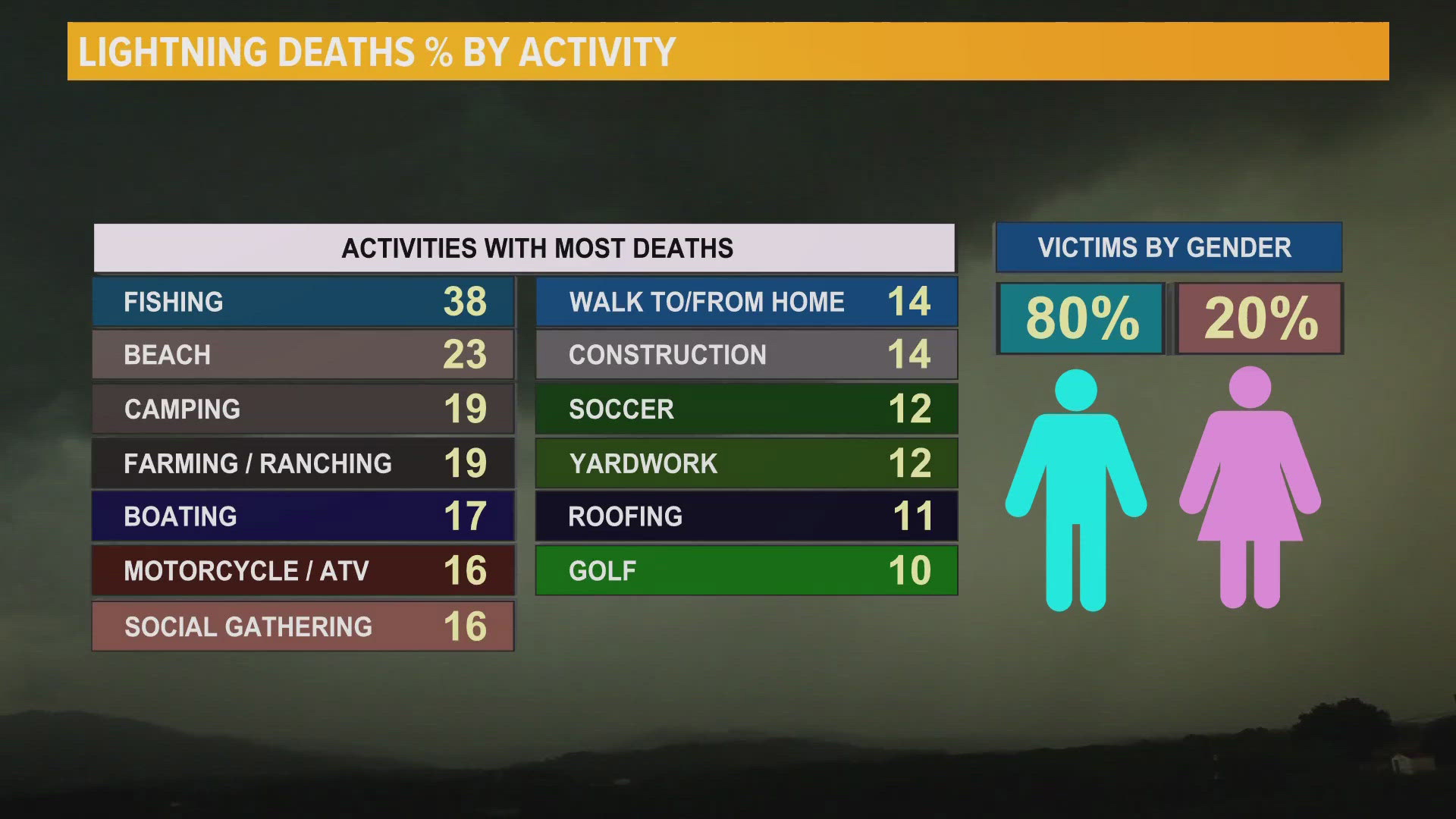JACKSONVILLE, Fla. — As Lightning Awareness Week kicks off from June 23-29, it's crucial for residents of Jacksonville and the First Coast to understand the dangers and take appropriate precautions.
This national campaign, organized by the National Weather Service (NWS), aims to educate the public about the risks of lightning and how to stay safe during thunderstorms.
Understanding Lightning
In Florida, lightning is a common and potentially deadly phenomenon. Did you know that lightning can be five times hotter than the surface of the sun? The surface temperature of the sun is approximately 10,000 degrees Fahrenheit, whereas a lightning bolt can reach up to 50,000 degrees.
Statistics show that the most dangerous outdoor activity during thunderstorms is fishing, accounting for 38% of lightning-related deaths among outdoor activities. Additionally, 80% of lightning strikes affect men compared to women.
Jacksonville: A Lightning Hotspot
Jacksonville experiences an average of 68 lightning days per year, ranking it among the top ten large U.S. cities with the most lightning activity. Here are the top ten cities with the highest number of lightning days:
- Tampa, Florida
- Orlando, Florida
- Jacksonville, Florida
- Miami, Florida
- Houston, Texas
- New Orleans, Louisiana
- Oklahoma City, Oklahoma
- Dallas, Texas
- Atlanta, Georgia
- Phoenix, Arizona
Safety tips during a lightning storm
If you spot lightning or hear thunder, it's essential to take immediate action:
Seek Shelter Indoors: The safest place to be during a lightning storm is inside a sturdy building.
Get Inside a Vehicle: If you can't find a building, a car is a safe alternative. The metal frame of a vehicle can act as a Faraday cage, directing the electrical charge around the passengers and safely to the ground.
Avoid Trees: Never stand under a tree during a lightning storm. Trees can conduct lightning, and if struck, the charge can travel through the tree and potentially injure anyone standing nearby.
Stay Away from Water: Avoid bathing or swimming. Water is an excellent conductor of electricity, and being in or near it during a storm increases the risk of being struck.
As we head into the peak of lightning season on the First Coast, remember that lightning is one of the most dangerous aspects of weather. For more information on the forecast check here.

